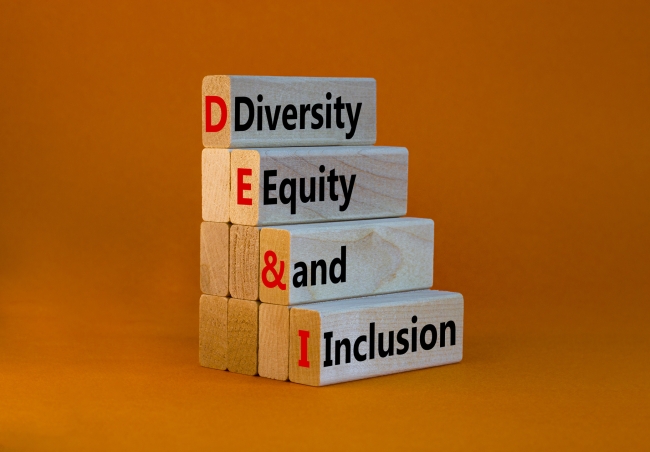You have /5 articles left.
Sign up for a free account or log in.

Dzmitry Dzemidovich/iStock/Getty Images Plus
As the vice president for equity and social justice at Emerson College, I am alarmed by the increasing rhetoric and model legislation against diversity, equity and inclusion in higher education.
I pride myself on being a chief diversity officer (CDO) and for being on the front lines of helping to shape an evolving body of work in higher education. I believe that the work of CDOs helps colleges and universities accomplish their educational missions.
Currently, there is a disturbing trend of attacking the work we do. Much of the pushback to “abolish DEI” has been couched in concerns about “political coercion” and academic freedom.
These criticisms are hollow and misguided.
I, like nearly every CDO I have ever met, fully agree that teaching sensitive and controversial material is imperative. Challenging student perceptions—cultivating critical thinking and inviting cognitive dissonance—are central tasks of a postsecondary education.
Yet, even in respecting the marketplace of ideas that academic freedom curates, it would be unethical and imprudent to disseminate intellectual ideas about topics such as eugenics and phrenology without the appropriate context of the harm derived from these schools of thought.
We cannot be ahistorical. What critics of DEI forget is that higher education was historically exclusionary. This history has ongoing ramifications.
It took a series of laws to broaden which citizens had access to higher education; now it is taking a concerted effort of examining institutional policies, practices and approaches to teaching to create more equitable outcomes within higher education.
Ironically, what some have pejoratively dubbed “DEI bureaucracies” have actually been part of reshaping and strengthening educational practices. At the core of DEI efforts is advancing learning.
Inclusive classroom climates are essential for effective learning: we know that student learning is heavily impacted by what Susan Ambrose describes as “the social, emotional and intellectual climate of the course.” By taking the need for an inclusive classroom climate seriously, we can free up cognitive bandwidth for students whose social identities have historically been excluded and pathologized in higher education.
Research shows that students’ academic engagement and achievement are tied to inclusion and belonging. And students benefit when an educational institution accounts for a diversity in learning styles and experiences.
DEI adversaries, perhaps unintentionally, frame issues of students’ negative experiences negotiating with their universities as interpersonal, rather than being institutional or structural.
In doing so, they can grossly minimize the amount of distress harmful encounters cause. These are often not one-off experiences, but rather chronic stressors. As Kevin Cokley, Shannon McClain, Alicia Enciso and Mercedes Martinez write in a 2013 journal article, “Although the mental health of ethnic minority college students is influenced by general stressors affecting all college students, including exams, writing papers and other academic stressors … their mental health is also likely to be negatively affected by additional stressors, including experiences with racism and discrimination, traumatic stress, educational hegemony, insensitive comments and questions of belonging on a college campus.”
Here at Emerson, we take great pride that our definition of effective teaching calls on us to “create inclusive learning environments for all students in the Emerson community.” This is an imperative taken by our faculty with support from the faculty-led Educational Equity and Justice Committee.
Our faculty members do have and should have a tremendous power to establish the norms in their classrooms and to shape their own educational plans. But we also understand that:
- It is not preposterous to encourage faculty to demonstrate empathy.
- It is not preposterous to encourage faculty to be able to pivot and be responsive to a diverse student population.
- There is a clear preponderance of evidence to suggest inclusive practices benefit learning.
It goes without saying that the field of DEI is not above reproach. The practices and approaches that institutions take in relation to DEI warrant scrutiny, research and iteration.
DEI calls for greater accountability around experiences of faculty, staff and students alike, and that is a good thing in order to build robust learning communities.
Students are learners, but they are also people. As learners and people, they are impacted by institutions that fail to be identity-conscious and that fail to consider the ways that higher education itself has been shaped by robust histories of discrimination and exclusion.
DEI enriches learning for all, not just students who have been historically marginalized, and the increasing attacks that deny the critical value-add of DEI are missing the point.




